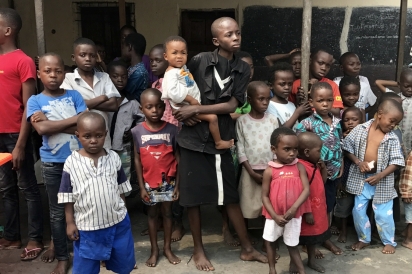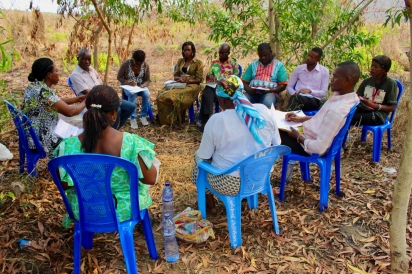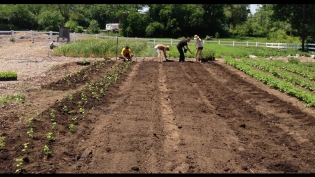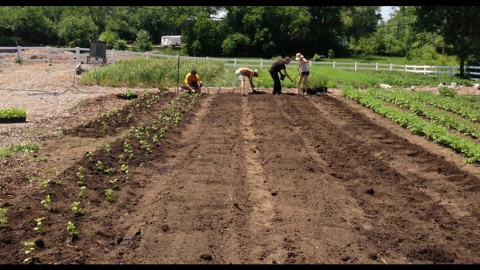Bugging Out About Farms
A veterinarian by training, Farms for Orphans (FFO) founder Amy Franklin thought her organization in Loveland, Colorado would teach orphanages how to farm traditional forms of protein—beef, poultry, pork. But soon after the founding in 2015, a board member sent her information on insect farming. This is where she wanted to implement her idea for renewable consumption.
Franklin, an adoptive mom of two kids from the Democratic Republic of the Congo, was aware of the dismal conditions of orphanages in the Sub-Saharan African country. Indianapolis’ Global Orphan Foundation (GOF) had been working in the Democratic Republic of the Congo for about 10 years at the point Franklin approached Nicole Brandt, executive director of the foundation. In September of this year, they trained the first five orphanages in the art of insect farming.
“Most of the orphanages are in urban settings. So, it was about coming up with something that would only need a small space,” Brandt says. “They’re often blocked in on every side by other buildings. So, there really isn’t room for a pig or cow.”
Through this farming method, insects are bred in captivity, and raised for human consumption and/or agricultural purposes. Typically, insects can be farmed for animal food, such as chicken feed. Right now, the orphanages are only harvesting the insects for consumption, not for agricultural practices.
About 2 billion people in the world eat insects. The bugs the orphans harvest—Palm Weevil Larvae—are actually a delicacy in the region. In the past, the insect has been out of reach for poor people and orphans. They are traditionally wild-caught and seasonal.
A pound of the beetle larvae is about the same price as a pound of beef. But these crops aren’t pattied and put between buns.
“One of our farmers eats them live, raw. I couldn’t handle that,” Franklin laughs. “But we just fried them and they cook in their own fat. They’re kind of this greasy, deliciousness. They actually taste like tiny, breakfast sausages.”
The larvae have a life cycle of about 30-45 days. Because of this quick turnaround, the orphanages can start stacking generations to get a new batch every 5 to 6 days.
“It’s like growing high protein carrots in your backyard, but it’s like you’re getting new carrots every 5 to 6 days,” Brandt says.
The main goal of the project is to bring autonomy to the orphanages that they never had before. The GOF and FFO provide the materials: clear bins, thermometers, a scale to measure yield and a step-by-step farming manual developed by the organizations. After the orphanages have the resources, the kids are able to easily sustain a protein-enriched food source to, ideally, cut down on malnourishment and sickness.
Every quarter, they will measure height and weight of kids ages 3 to 7, although everyone has access to the food source. The organizations will perform blood tests to determine iron levels as well.
What’s next for insect farming? Brandt and Franklin will travel to Cape Town, South Africa to host a poster presentation at the Global Food Security Conference in December. The partnering organizations will have a poster dedicated to their project, outlining what they have done and will do. They hope to eventually farm native caterpillars and crickets.
“I never in a million years thought I would be promoting insect consumption,” Franklin says. “It’s kind of crazy to me. I’ve gotten to this point where I’m eating insects and encouraging others to do so.”
Learn more about the organization or how you can help by visiting Global Orphan Foundation
Written for edible Indy by Alexis Price, a Butler University student.









